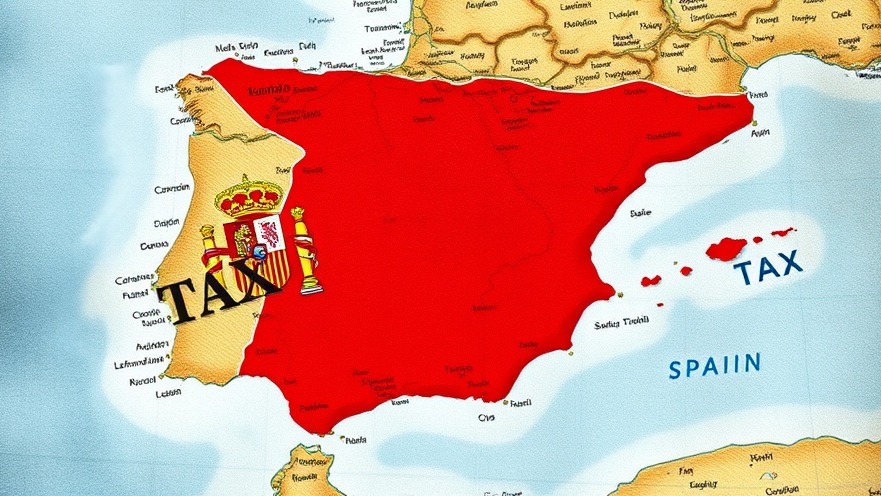
Understanding the Need for Healthcare as an Expat
As more retirees, baby boomers, and digital nomads seek new adventures abroad, the question of healthcare becomes crucial. Why is healthcare essential for expats? Basic healthcare coverage isn’t merely a safety net; it’s a lifeline in unfamiliar environments. Comprehensive global medical insurance typically encompasses everything from hospitalization to outpatient care, including specialist visits, prescriptions, and preventive services. In many plans, vital areas such as maternity, mental health, and chronic care are also covered, ensuring a well-rounded safety net for individuals living in a foreign land.
In 'Why Expats Need Healthcare: Essential Tips for Living Abroad,' the video discusses critical insights into healthcare as an expat, prompting us to delve deeper into its key aspects.
The Importance of Global Reach with Local Support
When selecting an international health insurance plan, expats should prioritize options that boast a strong local presence in their host country. This is vital not only for ease of access to care but also for the peace of mind that comes with knowing there are reputable providers nearby. Quality insurers like Sigma have established partnerships globally, enabling their clients to receive prompt and efficient medical attention. In an emergency, knowing your plan supports local providers can make all the difference.
Emergency Medical Evacuation: A Necessary Consideration
One of the standout features of top-tier international health insurance is emergency medical evacuation and repatriation. In crises—be it a natural disaster or a severe medical emergency—having transport to safe facilities is essential. Plans that cover evacuation decrease your anxiety in critical times, allowing you to focus on recovery rather than logistics.
Flexibility and Customization: Tailoring Coverage to Your Needs
As personal circumstances vary significantly among expats, choosing a flexible health plan becomes paramount. Whether you require dental, vision coverage, or varying deductibles, the best plans can adapt to meet individual budgets and needs. For instance, many policies allow for up to 180 days of coverage in one’s home country, which can be crucial for those who travel often. The availability of customization helps expats avoid overpaying while ensuring they have the necessary coverage.
A Closer Look at Pre-Existing Conditions
Before settling on a health plan, examining how pre-existing conditions are handled is key. Group plans may offer better coverage, while individual plans often come with exclusions. For many expats, especially older individuals with a history of health issues, understanding these nuances can mean the difference between adequate care and significant financial strain. Be proactive in approaching insurers to inquire about your specific health background and how it impacts your potential coverage.
Streamlined Claims Process for Peace of Mind
Navigating health insurance doesn’t have to be another source of stress. Opting for top health plans that offer direct billing and swift reimbursements simplifies the claims process significantly. Choose providers who are known for their easy claims handling, as this can save time and alleviate frustration during critical moments.
Investing in Value and Transparency
When it comes to healthcare, expats should prioritize value over mere cost. Transparent pricing ensures that there are no unwelcome surprises later on. In today’s rapidly changing healthcare landscape, understanding how much you are paying—and for what—is essential to safeguarding your financial health while abroad.
Support and Resources: A Critical Safety Net
Some international health plans stand out due to their 24/7 multilingual support. For expats, having access to assistance in different languages can be invaluable when dealing with healthcare needs. Furthermore, insurers that provide additional resources like wellness programs and telemedicine add layers of convenience and support, making it easier to maintain optimal health. Clients who engage with expat financial services can also receive guides that demystify the health insurance landscape.
Final Thoughts on Choosing the Right Health Coverage
The decision regarding which health coverage to choose can be a daunting task for expatriates. Proper insurance is not just about compliance; it's about ensuring peace of mind while navigating a new cultural landscape. Favor plans that offer flexibility, global coverage, and transparency, all while considering personal needs. For personalized guidance, contacting an expert such as those at Expat Financial can help illuminate your options.
If you’re planning your next big adventure or considering living abroad, understanding the nuances of expatriate healthcare is vital. Take the time to research thoroughly, ask questions, and prioritize your health with the right plan in place.
 Add Row
Add Row  Add
Add 




Write A Comment